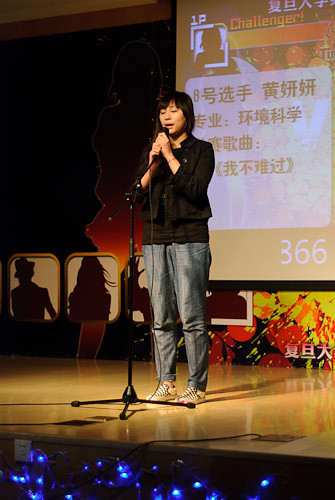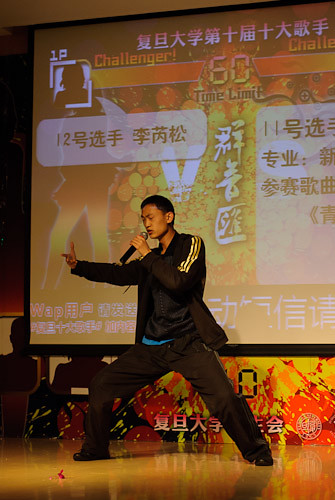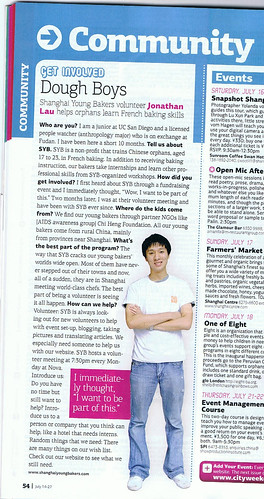I have been studying abroad at Fudan University for almost eight months now and recently quite a few people have been asking me “So what have you learned?” Usually the answers that I give out on the spot are lackluster and it gets me to wondering if I have learned anything at all! Last night, while sitting around alone at Burger King, I began to reflect on what I have learned so far.
Overexpansion
Much has been written about China’s property bubble, but it is hard to fathom when it is mixed in with news about China’s phenomenal growth. However, when you are actually at ground zero, the bubble seems much more obvious. Walking around Shanghai, row after row of vacant apartment blocks, deserted multi-story luxury malls and redevelopment projects are the norm. At night, pitch black apartment blocks sit right across the street from a construction for yet another new apartment complex. On a typical day at the multi-story luxury malls on West Nanjing road, I may see twenty or so shoppers in the entire mall, but despite this all the stores are fully staffed every day and more commercial centers are planned just one street over at Weihai road. The Shanghai city government has redeveloped an area south of the bund called the Cool Docks, billing it as the next expat hot spot. The Cool Docks have been empty since the day it opened and yet more redevelopment projects are planned with the goal of turning area in between the Cool Docks and the Bund into one giant tourist walkway full of luxury shops.
It is hard to see how all of this is sustainable given that China is facing growing unemployment and stagnating wages. I get the feeling that the professors I study under are equally as dumbfounded by how China just works despite the growing laundry list of problems. How long can the country keep defying the law of supply and demand? In my opinion, China is a gilded country with new shiny glass skyscrapers and luxury stores concealing the fact that the large majority of Chinese people are just subsisting and in no condition to support such developments. Shanghai is the richest city in China, but even its population cannot sustain the developments that are taking place in the city and to see this all I had to do was step into a mall.
Shortcomings of Chinese Higher Education
In the states, the media constantly reports on Chinese super students and how Chinese universities are graduating more students than ever. There is a fear that Chinese graduates are going to dominate America in the very near future and for a while I was in that bandwagon. However, after attending Fudan University, my eyes have been opened to the shortcomings of Chinese higher education.
For all intents and purposes, I am on vacation while studying in Shanghai as compared to San Diego. The standards at Fudan are lax and the class curve that is enforced throughout the university is extremely generous. The Chinese professors that I have had have been poor instructors and worse of all; many professors who are teaching in English can barely speak the language at all. Chinese academia has not escaped the gilded nature of the country with Fudan offering many more classes in English than it can effectively staff in order to boost its prestige. In addition, after reading a few articles and papers that a prominent Fudan professor wrote, I cannot help but question the quality of the research that is being done in China. These questions of legitimacy are further compounded by the fact that there have been numerous cases of plagiarism involving high ranking university professors.
Many of the Fudan students I have talked to have a negative view on their classes, describing it as a waste of time. Indeed, that seems to be the case whenever I look into a classroom I see the students either dozing off or reading books not pertaining to class, while the professor drones on. That is not to say that Chinese students are not ambitious, on the contrary to their behavior in class. Outside of class, Fudan students are quite studious and hardworking. Many of the students show up to class because attendance is mandatory and then learn by themselves through reading the textbook. By American standards, Fudan students lead Spartan lives revolving around academics and extracurricular activities that will make them more competitive in the workforce. Sadly, the university does not seem to be keeping up with its students.
Fudan University is generally considered the third best university in China. Chinese academia only gets worse as one goes down the list of universities. Seeing the quality of Chinese higher education for myself, I now understand why there is such a large number of unemployed graduates. Western universities can take comfort in knowing that Chinese higher education is nowhere near them in quality.
Final thoughts
“Seeing is believing” and being on the ground in China has opened my eyes to all the misplaced hype about China. After eight months, the country looks like one giant house of cards, albeit one that unexplainably keeps adding more levels.


